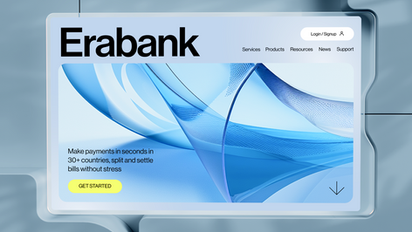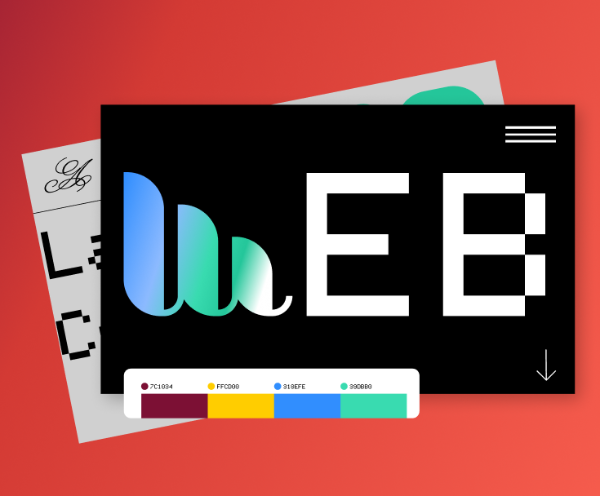Food Web Template Trends
Food Web Template Trends
Food Web Template
As a small business owner, creating an online presence is essential in today’s digital world. A website serves as a virtual storefront where potential customers can learn more about your products or services, contact you, and ultimately make a purchase. However, building a professional-looking website can be daunting, especially if you don’t have any technical skills or experience.

Food Web Template
Food Web Template
What is a website builder?
A website builder is a tool that allows users to create and customize their own websites without needing to know how to code. These platforms typically offer a variety of templates and drag-and-drop tools that make it easy for even those with limited technical skills to create a website that fits their needs.
Inexpensive website builders offer affordable options for those looking to create a website on a budget. While some of these platforms may have limitations in terms of customization and functionality compared to more expensive options, they still provide a cost-effective way to get your website up and running quickly.
Features of inexpensive website builders
While the features offered by inexpensive website builders may vary, there are some common features that you can expect to find across many platforms:
1. Templates: Most website builders offer a selection of pre-designed templates that you can customize to create a unique look for your website. These templates are typically responsive, meaning they will look good on any device, from desktop computers to smartphones.
2. Drag-and-drop tools: One of the key features of website builders is their drag-and-drop functionality, which allows you to easily add and rearrange elements on your website without needing to know how to code.
3. E-commerce capabilities: Many website builders offer built-in e-commerce tools that make it easy to set up an online store and start selling products or services.
4. SEO tools: Some website builders include basic SEO tools that help you optimize your website for search engines, making it easier for potential customers to find you online.
5. Custom domain and hosting: Many website builders offer the option to purchase a custom domain and hosting directly through their platform, making it easy to get your website up and running quickly.
6. Customer support: Most website builders offer customer support to help you troubleshoot any issues or answer any questions you may have while building your website.
Best inexpensive website builders
There are many inexpensive website builders available, each offering different features and pricing options. Here are some of the best options for creating a professional website on a budget:
1. Wix: Wix is a popular website builder that offers a range of pricing plans, including a free option with basic features and paid plans starting at just $14 per month. Wix’s drag-and-drop tools and customizable templates make it easy to create a professional-looking website without any coding knowledge.
2. Weebly: Weebly is another user-friendly website builder that offers a free plan with basic features and paid plans starting at $6 per month. Weebly’s e-commerce tools and responsive templates make it a great option for small businesses looking to sell products online.
3. Squarespace: Squarespace is a visually stunning website builder that offers plans starting at $12 per month. With its modern templates and powerful customization options, Squarespace is a great option for creatives and small businesses looking to make a statement online.
4. WordPress.com: WordPress.com is a popular website builder that offers a free plan with limited features and paid plans starting at $4 per month. While WordPress.com is not as customizable as self-hosted WordPress.org, it still offers plenty of flexibility and functionality for those looking to create a professional website on a budget.
What is a Web Developer?
A web developer is a professional who specializes in building websites and web applications. They are responsible for the technical aspects of a website, including coding, design, and functionality. Web developers work closely with clients to understand their needs and create customized websites that meet their specific requirements. They are also responsible for ensuring that websites are user-friendly, easy to navigate, and perform well on different devices and browsers.
Web developers can specialize in different areas of web development, such as front-end development, back-end development, or full-stack development. Front-end developers focus on the design and user experience of a website, using languages such as HTML, CSS, and JavaScript. Back-end developers work on the server-side of a website, managing databases and ensuring that websites run smoothly. Full-stack developers have expertise in both front-end and back-end development, allowing them to work on all aspects of a website.
Skills Required for Web Developers
Web development is a challenging and dynamic field that requires a diverse set of skills. Some of the key skills needed to be a successful web developer include:
1. Proficiency in programming languages: Web developers should have a solid understanding of programming languages such as HTML, CSS, JavaScript, and PHP. They should also be familiar with frameworks and libraries such as React, Angular, and jQuery.
2. Design skills: Good design skills are essential for front-end developers, as they are responsible for creating visually appealing and user-friendly websites. Knowledge of design principles and tools such as Adobe Photoshop and Sketch is important for web developers.
3. Problem-solving abilities: Web developers need to be skilled problem solvers, as they often encounter technical challenges when building websites. The ability to think analytically and troubleshoot issues is crucial in this field.
4. Communication skills: Web developers need to work closely with clients, designers, and other team members to create websites that meet their needs. Strong communication skills are essential for understanding requirements, providing updates, and resolving any issues that may arise.
5. Time management: Web development projects often have tight deadlines, so web developers need to be able to manage their time effectively and prioritize tasks to meet deadlines.
Importance of Web Development
Web development plays a critical role in today’s society, as websites are essential for businesses, organizations, and individuals to connect with their target audiences. Some of the key reasons why web development is important include:
1. Increased visibility: Having a strong online presence is essential for businesses to reach a wider audience and attract new customers. Websites allow businesses to showcase their products or services and provide valuable information to potential customers.
2. Credibility: A well-designed and professional website can enhance the credibility of a business or organization. Websites that are visually appealing, easy to navigate, and optimized for search engines are more likely to attract customers and build trust.
3. Accessibility: Websites are accessible 24/7, allowing businesses to reach customers at any time, regardless of their location. This accessibility can help businesses expand their reach and attract new customers from different parts of the world.
4. Competitive advantage: In today’s competitive market, having a well-designed website can give businesses a competitive edge. A user-friendly website that provides valuable content and a seamless user experience can help businesses stand out from their competitors.
5. Innovation: Web development is constantly evolving, with new technologies and trends emerging regularly. Web developers play a crucial role in driving innovation and creating websites that are responsive, interactive, and engaging for users.

Food Web Template
Food Web Template
Conclusion
In conclusion, responsive web development is an essential aspect of modern website design, as it ensures that a website can adapt to different screen sizes and devices. By using flexible grids, media queries, fluid images, and a mobile-first approach, developers can create websites that provide a seamless user experience on all devices. Responsive design offers numerous benefits, including improved user experience, higher conversion rates, better SEO performance, and cost-effectiveness. While there are some challenges to consider, such as compatibility issues and performance optimization, responsive web development is a crucial practice for creating successful and user-friendly websites in today’s digital landscape.


